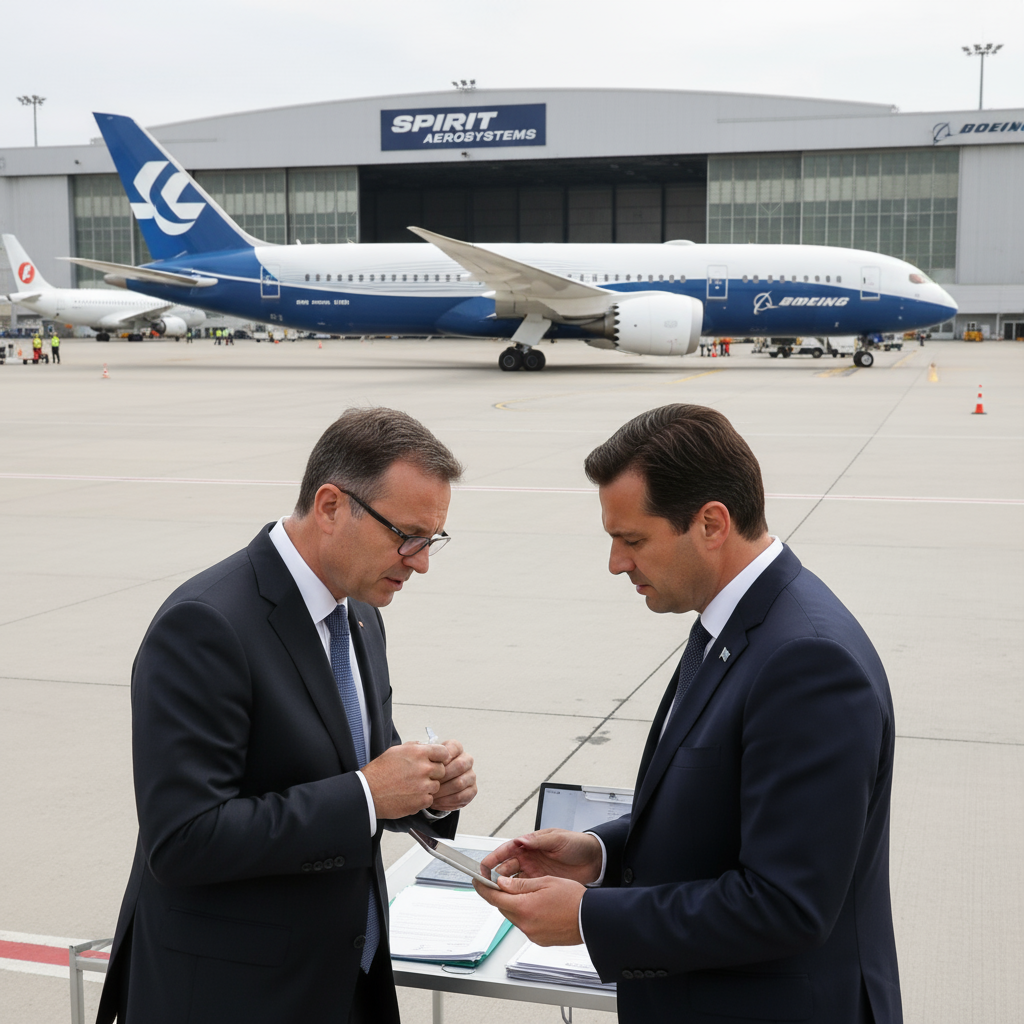Physical Address
304 North Cardinal St.
Dorchester Center, MA 02124
Physical Address
304 North Cardinal St.
Dorchester Center, MA 02124
Global aviation news tracker
Global aviation news tracker

Boeing’s $4.7 billion acquisition of Spirit AeroSystems is poised to win EU approval, but only after conditions that reshape parts of the supply chain.
The Boeing Spirit deal — a $4.7 billion purchase of Spirit AeroSystems — faces a European Commission decision due on October 14, 2025. Regulators are expected to clear the transaction but require Boeing to divest some Spirit operations that serve Airbus and other customers, including facilities in Scotland, Malaysia and Northern Ireland.
The deal has already been cleared by the UK regulator and is under review in the United States, where authorities so far have not signalled they will block it. For Boeing, the takeover is part of a larger push to regain supply-chain control after recent production and safety setbacks.
Spirit AeroSystems manufactures major structures for both Boeing and Airbus — commercial and military — supplying fuselage sections and other large assemblies. Under the EU’s expected conditions, Airbus will take on Spirit’s loss-making operations tied to its A220 and A350 programmes, allowing Boeing to integrate the remaining business into its recovery strategy.
Analysts say the deal could stabilise Boeing’s parts pipeline and shorten lead times for main structures, but it also shifts some risk to Airbus by transferring loss-making lines tied to the A220 and A350. For Spirit employees and regional economies in the affected sites, the outcome will determine who keeps engineering, production and maintenance roles.
Expect incremental announcements: the European Commission’s decision will set binding remedies if approved, and US regulators may follow with their own conclusions. Whatever the precise terms, the transaction marks a major step in Boeing’s turnaround efforts and will rework how fuselage and large-structure work is allocated across the industry.